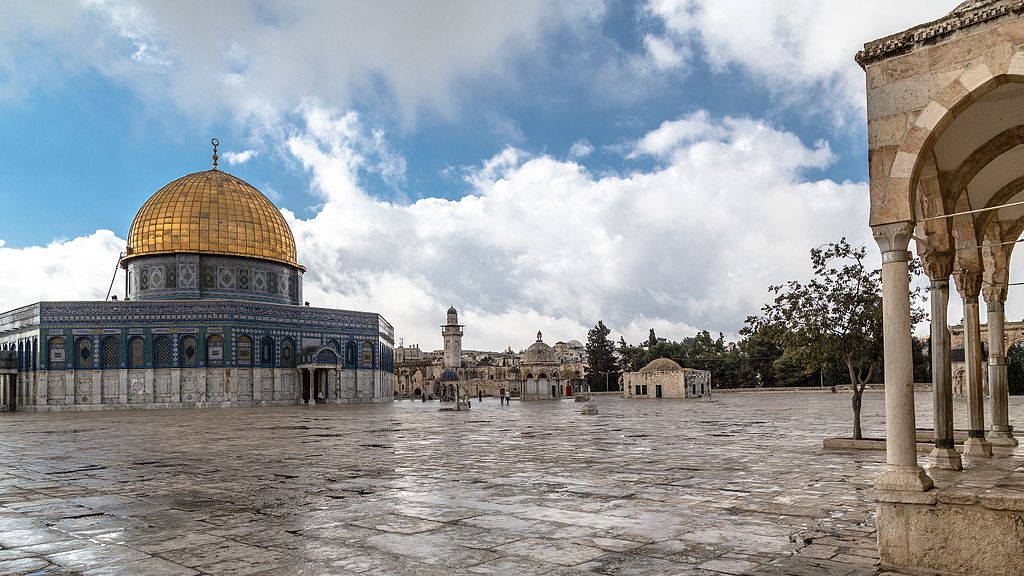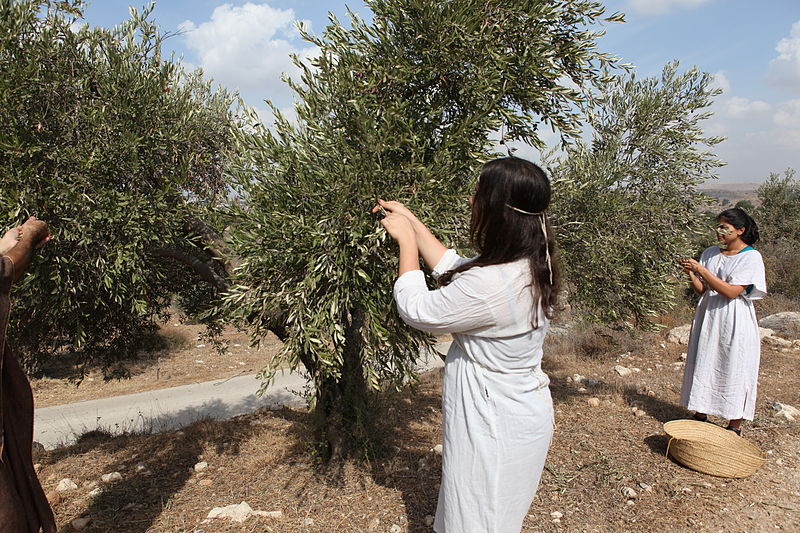Over the last 24 hours people all over Israel observed a very odd sight: rain in June. Especially large amounts of rain fell in the usually dry southern part of country, with a record 64 millimeters falling at Kibbutz Dorot located near the city of Sderot. The last time this amount of rain fell during the month of June in Israel was in 1992. Although summer rain and thunderstorms are a very commonplace occurrence in many places in the world, they are almost unheard of in the Bible lands.
Rain in the summer is very rare event, as 95% of Israel’s rain falls during the “winter” (November – March). The “summer” (April-October), by contrast, is almost always totally dry with the exception of dew that falls at night. This fixed timetable is alluded to by the prophet Jeremiah:
But these people have stubborn and rebellious hearts; they have turned aside and gone away. They do not say to themselves, ‘Let us fear the Lord our God, who gives autumn and spring rains in season, who assures us of the regular weeks of harvest.’ (Jeremiah 5:23-24)
As in his other judgment oracles, the point that Jeremiah is making here is that the people of Israel will be punished because of their unfaithfulness to God. The best demonstration of this is that they do not thank God for the most basic features of their lives: the fixed weather pattern upon which all agrarian life in the Land of Israel is dependent.
It is important to note that if the weather obeys the normal schedule, the wet season begins in the autumn (after the Feast of Sukkot/Tabernacles) with the initial autumn rain known as yoreh יוֹרֶה. This word comes from the root YRH meaning “to shoot” or “to throw” because first rain “shoots” into the parched ground following the long summer, “pointing the way” towards a fertile harvest. The rainy season ends in the spring (after the Feast of Pesah/Passover) with the malkosh מַלְקוֹשׁ. This word comes from the root LKS meaning the “last” or “late”.

A family plays inside a container of newly harvested wheat in the Bet Shean Valley, northern Israel.
Although the vast majority of Israel’s rainfall occurs in the middle of the winter (December-February), these opening and closing precipitation events are particularly crucial. According to the Anchor Yale Bible Dictionary:
The early and latter rains are accentuated in the Old Testament because of their critical agricultural role: the early rains preparing the ground for plowing and sowing at the end of the dry season, and the latter rains providing the last bit of moisture which aids the maturation of cereal grains. (AYBD vol. 5:612)
It is not considered a blessing for the rain to continue past the spring because this can destroy the grain harvest that takes place in May (barley) and June (wheat). This is the reason why despite drought-like conditions throughout the summer, it is preferable to wait patiently for the arrival of the first rain in the fall, exactly as the Letter of James notes:
Be patient, then, brothers and sisters, until the Lord’s coming. See how the farmer waits for the land to yield its valuable crop, patiently waiting for the autumn and spring rains. (James 5:7)
Ultimately, the ideal situation for the farmers of the Land of Israel is a symbiotic relationship between man and nature, made possible by exclusive loyalty to God alone. That is to say that according to the Bible, the fertility of the Land of Israel is a reward for proper adherence to the covenant between God and Israel. There is no more concise statement of this arrangement than the following passage found in the Book of Deuteronomy:
So if you faithfully obey the commands I am giving you today—to love the Lord your God and to serve him with all your heart and with all your soul— then I will send rain on your land in its season, both autumn and spring rains, so that you may gather in your grain, new wine and olive oil. I will provide grass in the fields for your cattle, and you will eat and be satisfied. (Deut. 11:13-15)








Join the conversation (No comments yet)